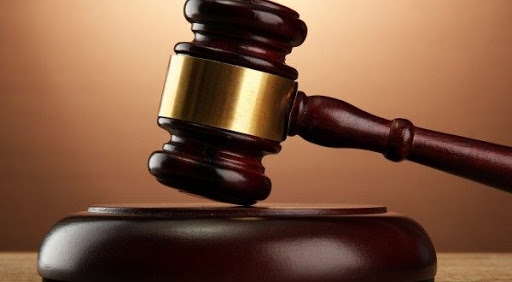Congratulations on your election to carry out the role of Senator.
Senate role
That role is rather different from that of members of the National Assembly.
The Constitution says the National Assembly represents the people of the constituencies. But the Senate represents the counties – not the people. But this does not mean you represent just the government of your county. Indeed an idea that county senators should be from the county government was abandoned.
While you are not the spokesperson of your county government you must be or become familiar with the issues affecting the county as such, including the views, policies and problems of that county government. A report for the Auditor General said, “The Senate is meant to be the eyes and the voice, and embody the wisdom and will of the counties.”
Each county has a senator – an equal voice in the Senate. And from those collective voices, the interests of the counties and the whole county government system, and of the county governments, will be voiced in the Senate.
Your role in lawmaking is a bit limited. And the National Assembly has sometimes tried to exclude the Senate. The courts have been on Senate’s side, insisting that when law does genuinely affect counties’ powers the Senate must be involved.
Your primary role is that of a bulwark for the whole devolution system. The Senate is not the place for devolution sceptics! For this to work, you must obviously be fully aware of the objectives of devolution (neatly set out in Article 174 of the Constitution, though other articles are important for the full picture).
WHY DEVOLUTION?
A county government is not the old local government – which would act based on national laws and administrative directions from government. Most of the paragraphs of Article 174 focus on bringing government and decision making closer to the people. Nairobi is to be de-emphasised.
Also bear in mind that Article 6 says that national and county government are distinct (and this is spelled out in Article 189(1)). You are part of the national government system and must respect the distinctness of the county governments. That is why the courts held that a law intended to involve senators in county development plans was unconstitutional. You must understand the functions of counties, especially in areas such as agriculture and health.
A bulwark against whom?
The most obvious threat to county government is the national government. Clearly, ensuring that county governments have enough financial resources is very important — and Senate plays a major part in decisions about allocation of money to the counties and between counties. Your work includes understanding complex matters of national finance.
Another issue is a tendency to try to run county governments – or tell them how to run things. In this, the Senate has not been blameless. The Constitution and national law (notably the County Governments Act and the Finance Management Act) do give a lot of directions to county governments. And under the Constitution the national level of government has the function of setting policy in various areas including the economy, education, housing, health and agriculture.
Sometimes it must set principles (like in land planning). But it is important to remember that the idea of devolution is to allow counties to carry out programmes that meet their specific needs. To pass law essentially telling counties what they must do is to detract from that idea. And county governments have the responsibility to decide how to spend their money. They have to account to the Auditor General and their electorate.
If national law says that counties must do this or that, building institutions and providing programmes, they are creating problems for counties for which they and not the national government will be held responsible. Yet the counties will have to do this out of their regular budget.
If the national government wishes to influence county governments in particular directions it can use conditional grants – extra money, not part of the equitable share, tied to particular purposes.
HELPING COUNTIES
It is true that sometimes devolution may be strengthened by measures ensuring that county institutions are working properly. In fact, the national government is given the power to step in if a county government cannot cope – to do what is necessary to help the county to take on its responsibilities (Article 190). And in extreme circumstances it may suspend a county government – and in the end elections for a new county government may have to be called (Article 192).
In both cases, the Senate has the power to bring these measures to an end. Again the Senate’s role is to protect the interests of the county. You are supposed to be, as it were, on the county’s side.
And the Constitution stresses that relations between governments must be on the basis of consultation and cooperation. Confrontation, and even jealousy, as seems to have motivated senators in the 11th Parliament, are both counter-productive and unconstitutional.
OVERSIGHT
I was sorry to read a statement allegedly by a new senator that their main role would be to keep the counties in order (or something to this effect).
Such a perception may be strengthened by an odd provision in the Constitution.
Article 96(3) says that the Senate exercises oversight over the national revenue allocated to the county governments. This provision was introduced into the Constitution by that committee of parliamentarians in Naivasha in 2010 – that group that tried to say the Senate was the Lower House of Parliament.
The Constitution says that the county assembly “may exercise oversight over the county executive committee” (Article 185(3). “Shall” – a directive – would surely have been more appropriate.
If the Senate thinks this is its major task, it risks undermining the role of the County Assembly. Most counties receive most of their money from the national government and if the Senate insists on carrying out a review of that expenditure, it will surely negate the county assembly’s role.
The Auditor General has reported problems with the Senate causing confusion by investigating before the county assembly has had a chance. Or the Senate delaying remedial action by delaying consideration of reports on counties. Realistically, the Senate does not have the time to oversee 47 county governments. I would suggest that it ought to reserve the use of this power for occasional checks or when there is reason to suppose its intervention is needed, or systemic issues – which the Auditor General does try to draw attention to. Let the county assemblies do their job, and learn to do it better.
Incidentally, the High Court has held that this Senate power does not go so far as reviewing county legislation.
IMPEACHMENT
The Senate is involved, if the President is ever impeached. More immediately relevant is its power in impeachment of governors. A county assembly moves for impeachment and if it passes the assembly, the case goes to the Senate.
The Senate may appoint a special committee to look into the case and its recommendation goes to the whole Senate. To remove the governor requires a majority of all the senators (so, like the impeachment of the President, the individual members, including list members, have a vote).
This is extremely important. Two governors have been removed and others have not. Sometimes the Senate has gone along with the County Assembly and sometimes it has not. Hopefully, both assemblies and Senate are learning how this process should be conducted. But we know that sometimes county assemblies have held their governors to ransom.
It is most important that governors can be assured that any impeachment will be conducted with the utmost fairness. And county assemblies must learn that it must not be used as a threat. The Senate has the role of ensuring that this whole process is done correctly, including in its own deliberations.
As President William Ruto emphasised, devolution has been one of the successes of the 2010 Constitution. Senate’s role — properly understood and wisely used — is crucial.








![[PHOTOS] Ruto hosts UDM leaders at State House](/_next/image?url=https%3A%2F%2Fcdn.radioafrica.digital%2Fimage%2F2025%2F07%2Fc69cdbaf-1cbd-4be3-a7e5-a42efcac7189.jpeg&w=3840&q=100)


